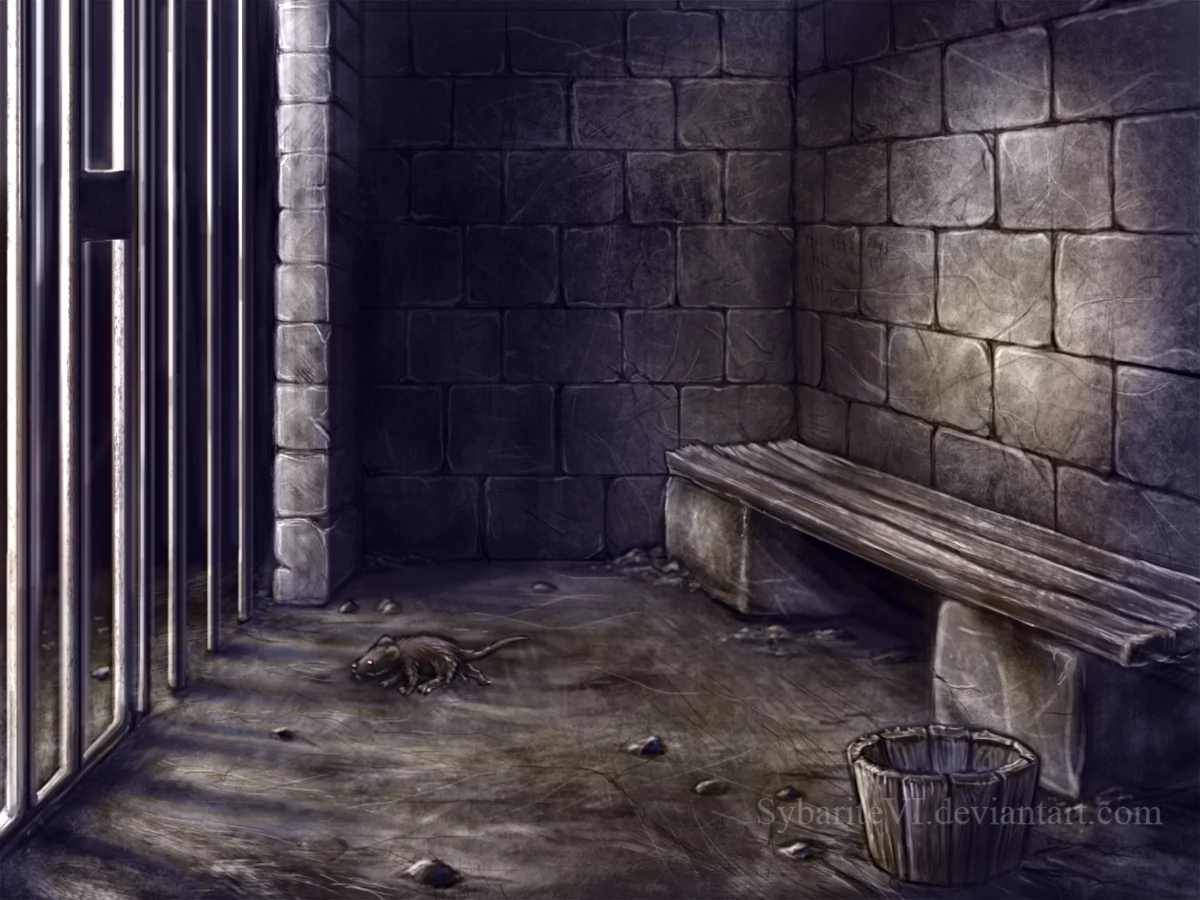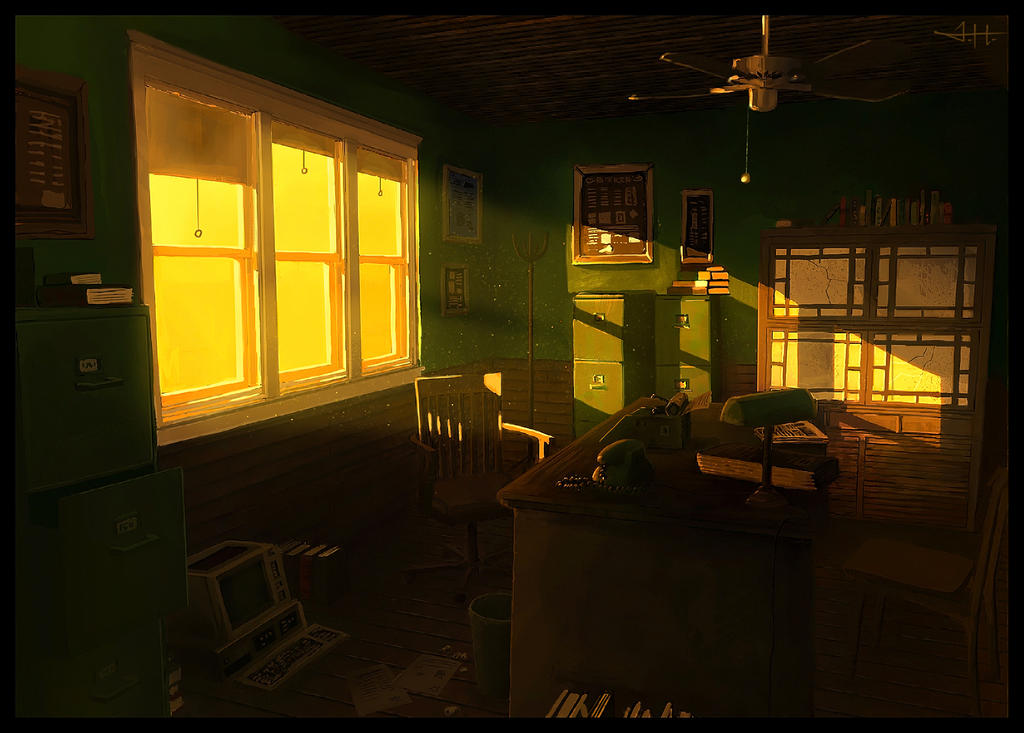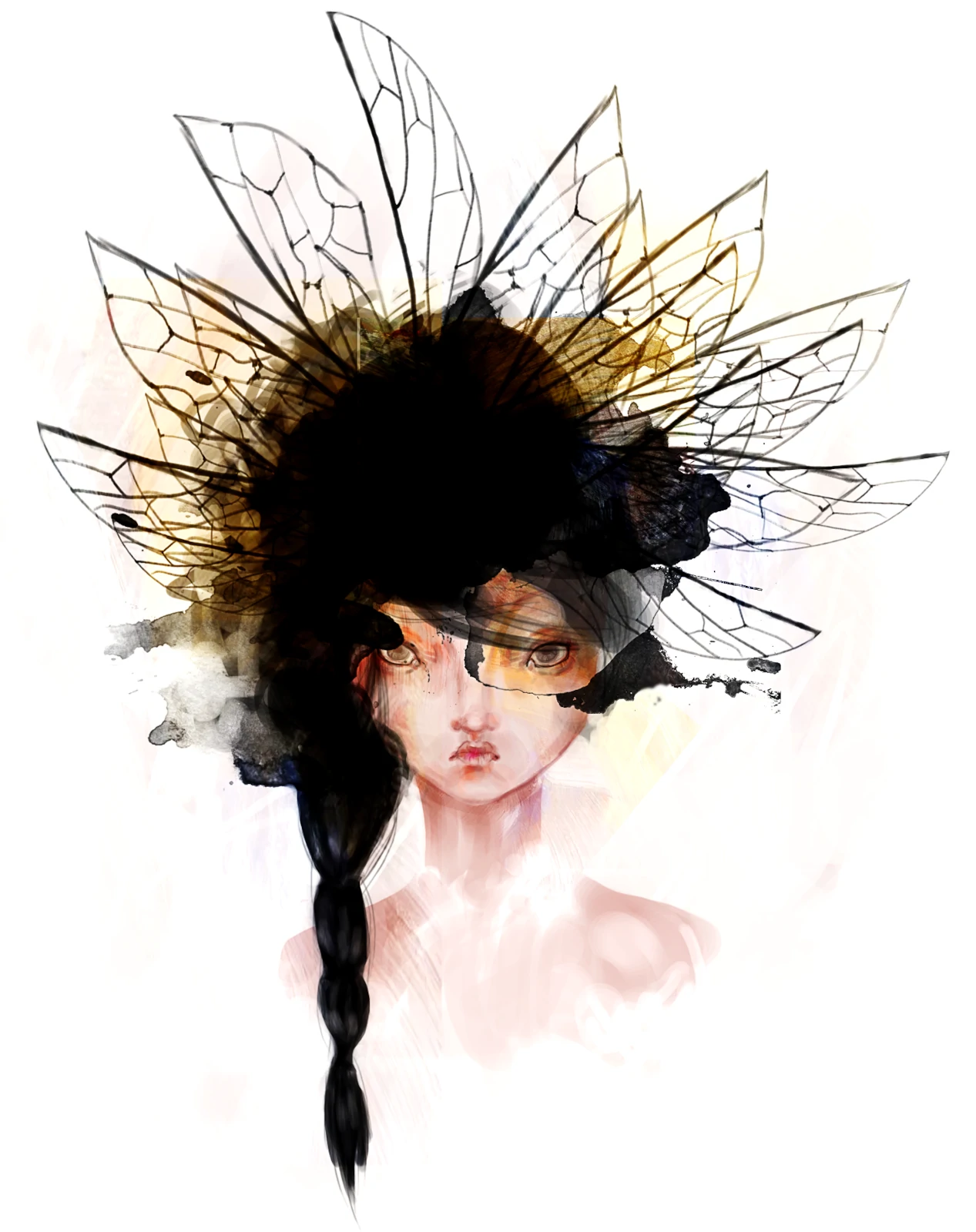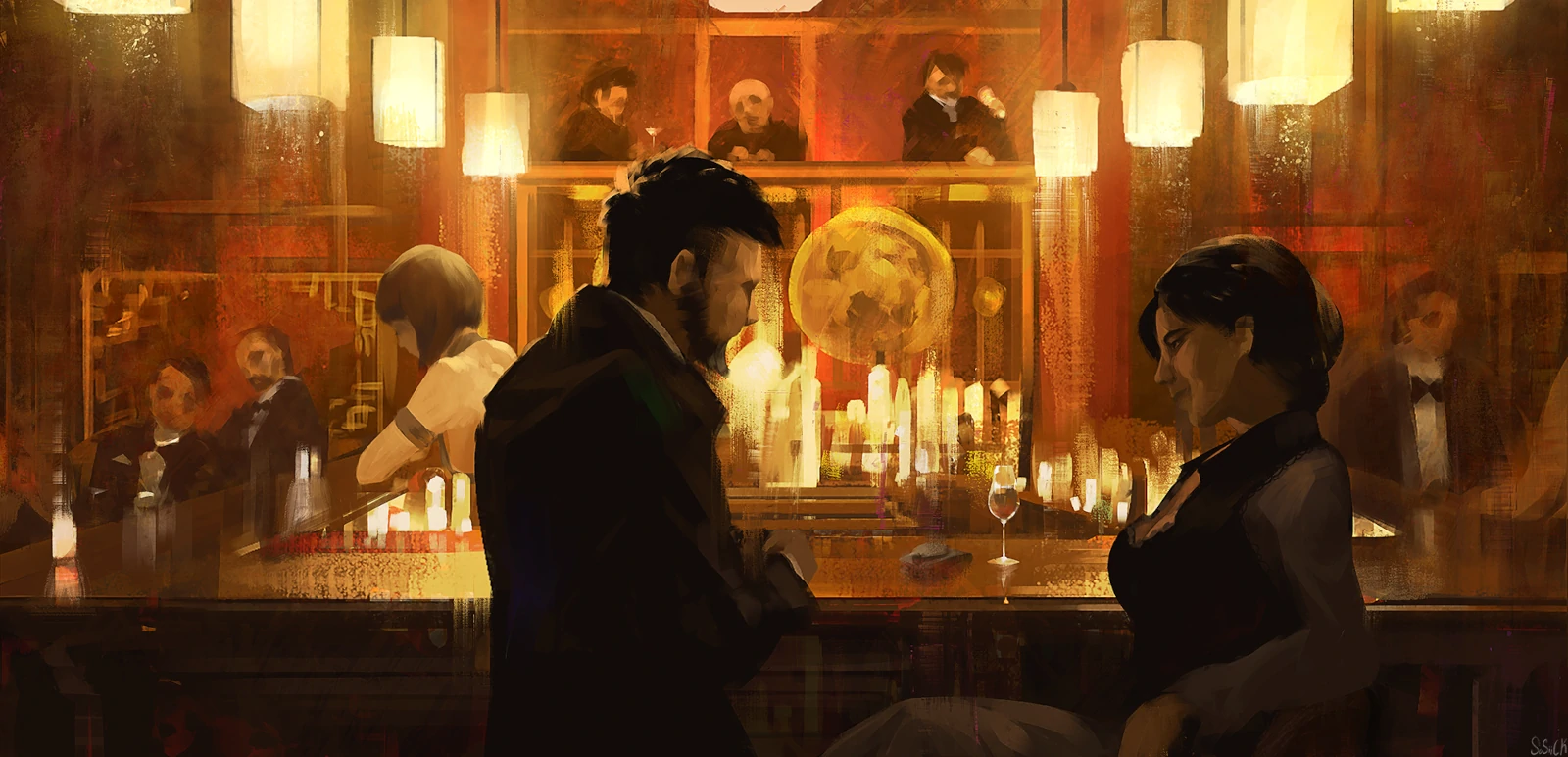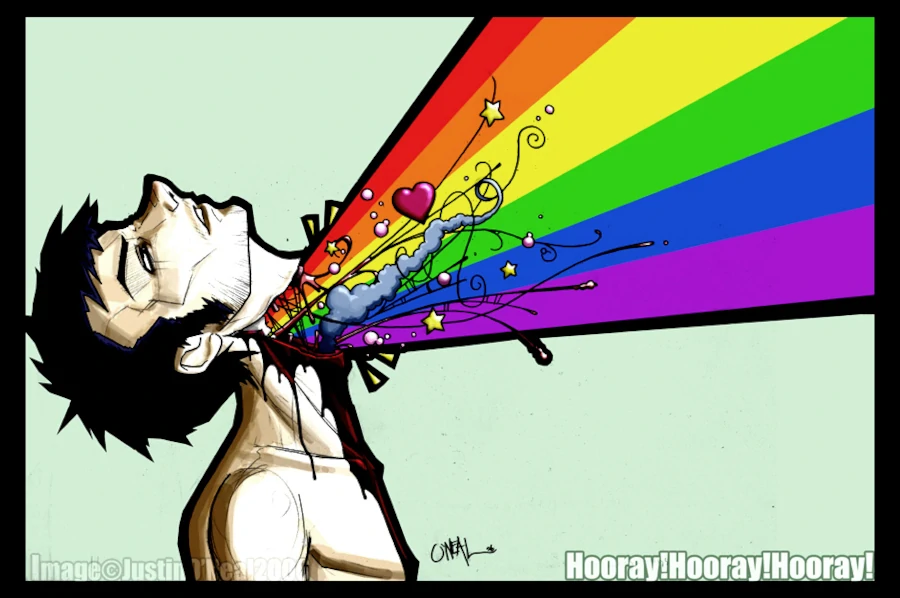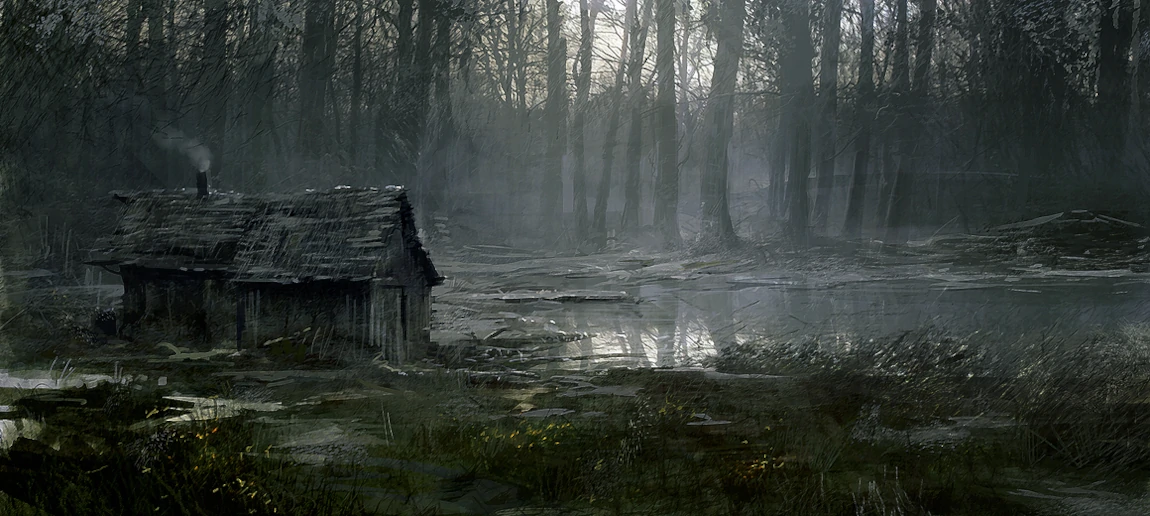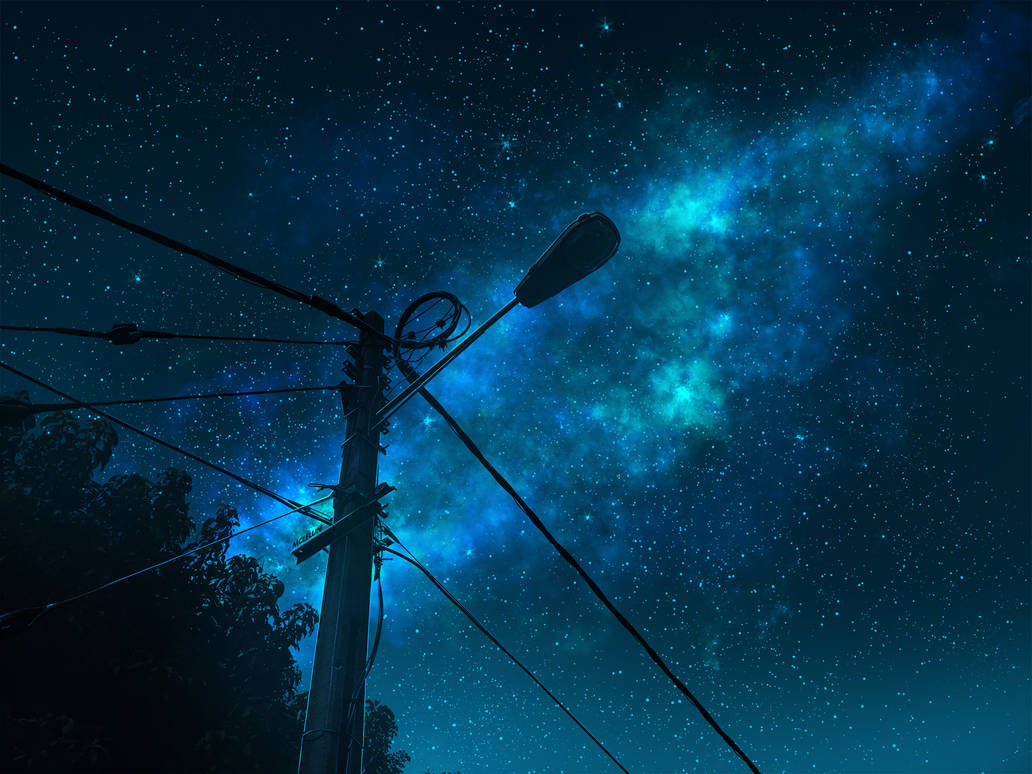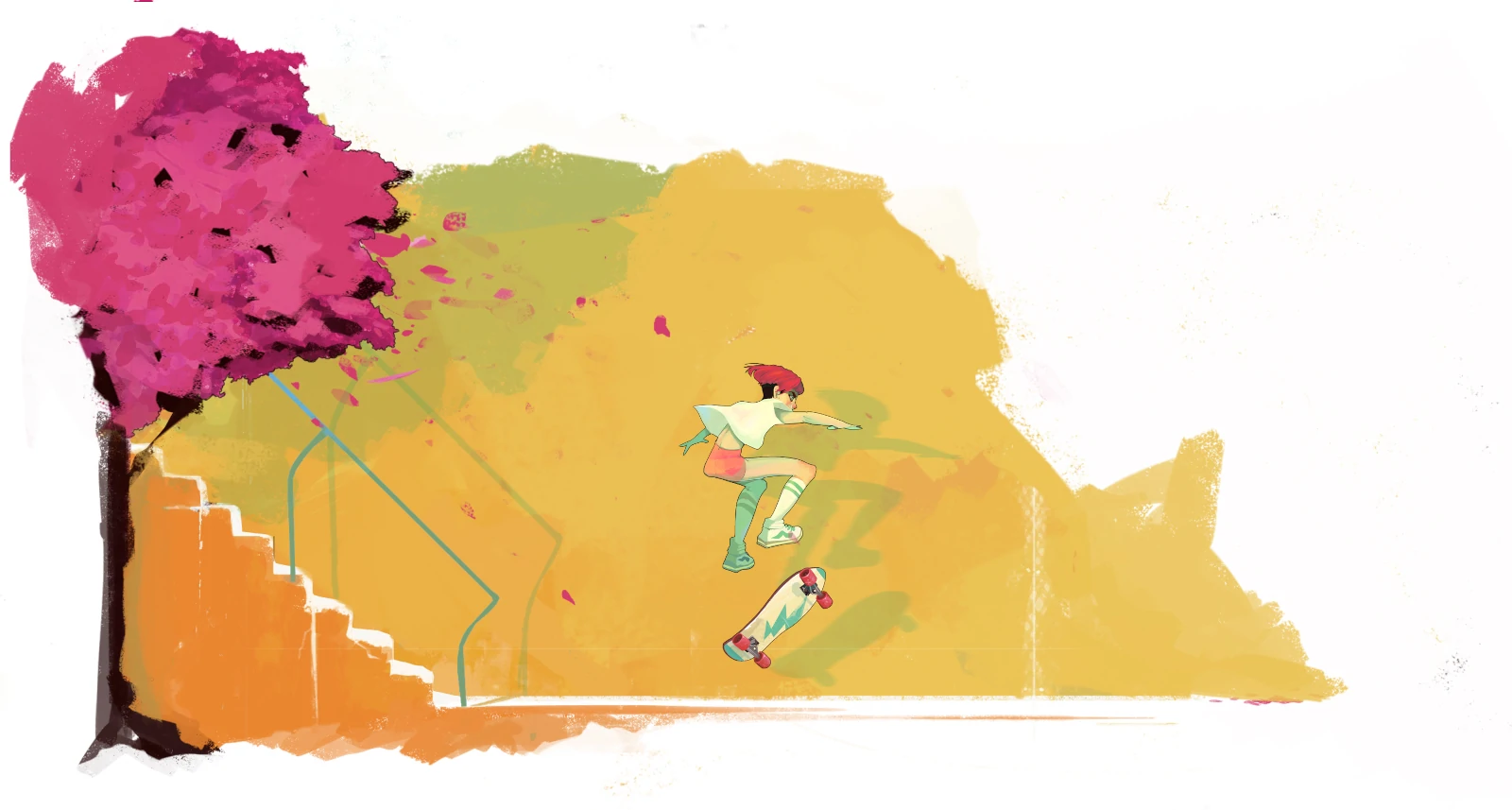The johns waited outside the battered wooden doors, and because the breezeway was the only place to play once you outgrew the bathtub, some of them tried to make friends. A few even remembered your name. Before you understood this meant they were repeat customers, that felt smart. You could tell them apart by their belt buckles. Double-etched-star gave you candy, Copper Cactus cheered as you wobbled along the outside wall of the motel learning to stay up on your board, and Gold-Silver-Square shoved his hands deep into his pockets, looked at no-one, said nothing with his kind and crooked mouth.
A passing-through john with an unremembered buckle was even there for your first tooth. Your hands behind your back, face tipped up to show just how loose, and out it flew, a small blood-hollow Chiclet landing on the metal toe of his black boot.
He was embarrassed, and paid you.
That was what you understood first. The johns were embarrassed, and what they did was pay. They paid for your room, your dinner, your first skateboard and the ones that followed, your first leather, even the blinking pink sign over the interstate: Girls, Girls, Girls.
But you were the only girl. Most of the other dancing moms had boys then, when you were still small. Maybe it was a coincidence. Or maybe most girls just don’t survive that life: get sent to live with grandparents or aunts or fosters.
The boys were jealous because the johns always gave you more attention—and more cash. Once you got a fifty-dollar bill, crisp off the top of a stack clipped together. Besides, in any drought summer you were easily the best in the empty swimming pool, the board held to your feet like magic, your knuckles hardly bloody from scraping pavement. For you, gravity was a choice, not a requirement. You leapt over curbs and potholes in the wide desert night, the air dry as what you knew of love, a pocket full of change given by a stranger who wanted what your mom called talking-time but needed you gone to say whatever it was.
You slept cross-legged in the orange stuffed chair next to the scarred desk in the motel room you and your mom shared. She shook you awake, turned off the TV, and lifted you by the shoulders.
“C’mon,” she said.
“But Ma,” you said, your throat thick with sleep. “I need talking-time.”
“C’mon, baby.”
You stood up. Even at six or seven, you knew the drill.
She’d send you with Gloria, who said she’d watch you with the younger boys in the storage closet while she folded towels and sheets. But by the time you were ten years old you were a master at the art of escape, and Gloria knew better than anyone that a girl has to handle herself. Once the boys started wrestling or throwing rolls of toilet paper, it was easy enough to sneak out, walk past the johns for more loot and admiration, and back into the building. You hauled your board through the swinging metal doors to the kitchen where a new prep cook took up a mop and chased you out into the back alley, grunting through his clenched teeth: Chico Malo.
You stuck your tongue out. Couldn’t he see that you had long hair under that baseball cap, for Christ’s sake?
The bussers laughed at him, waved at you, and continued to practise their blackjack skills on an upturned milk crate, cigarettes clamped in their teeth.
In the big parking lot, the one that was good for speed but dangerous, eighteen-wheelers lined up like the beached whales you’d seen in a National Geographic some john left in the breezeway. But the only ocean you knew was the hot sea of asphalt that enveloped your body’s continent. You turned, dropped your board, and coasted the smaller lot, jumping potholes and beer cans.
You passed the guys who stood in a tight circle at the back of the lot, waiting for the trailer-trash kids to hit them up for a baggie. Sometimes they thrust their chests out and strutted around, getting up in each other’s faces. You weren’t old enough to buy, so they looked right through you: except one guy, lanky with a long black ponytail, who smiled at you once or twice, touched the edge of his baseball cap. Independent, same brand as yours. You felt his eyes on you as you rolled past all the junk cars that Chester, owner of that fine palace, meant to fix but never had the time.
Black-ponytail, you thought, got it. Understood that you could float, you were a master of your trade. Looked like he might’ve topped a board in his day.
You tossed your board over the fence, hauled yourself to the other side, and headed to the Sunoco for grape gum, Butterfingers, Swedish Fish, chewy as tar, in a two-for-a-dollar plastic bag. Midnight was never so glorious as when you sat on the edge of the gas pump’s island eating a whole bag of sour balls, one fluorescent shock after another until a thick rainbow grew in your throat.
On a good night, you’d get candy for the little boys waiting in the storage closet with Gloria. You did this to make up for being a girl, to make up for being between young and old. But most of your money, your mom’s too, went into the jar, the secret stash for your move to California, where your mom would do makeup for movie stars and you’d take on a real half-pipe. But until then, the gas station would have to do.
At midnight, when Mr. Al Adi left the station, he shooed you away from his handicap ramp, throwing his hands out as he yelled, “Go home, pest-brat!”
You laughed as he chased you, limping on his bad leg, through the parking lot.
“Home!” he yelled, pointing to the fence, to the lights rising from Chester’s.
Of course all the Sand Niggers, as your mother called them, the Kitchen-Spics, as they called themselves, and the regular Indians, named such by Columbus, knew what it meant to have no home, to live in an America that has nothing to do with you, an America that would not believe your story. That America did not know the comfort of the stadium lights and the smell of gasoline and the one time it rained, washing the dust of off of everything and there you were: ripping through the oily puddles before they were sucked back into the dry earth. You could trace your name in that brief water even if no one knew your name, not even your teacher, who’d seen a hundred kids like you come and go.
Despite heat that boiled the marrow in your bones, summer was your best season. You stayed out late, your mom worked more, and that was money in the jar. But even better, summer meant no teachers. Teachers and guys like Mr. Al Adi hated all the motel kids, but especially your kind because they couldn’t do anything about you or your situation. A person who considered himself some sort of upstanding citizen might talk big about busting Chester’s to give you a decent Christian life, but it was easier to kid himself about exactly which services the dancers performed, to stay good with the neighbors in that nothing-town, interstate-town, where everyone was cheating in some way. Besides, even though it wasn’t right, what your mom did, could he take the food right out of your mouth?
The ones who weren’t righteous were just clueless, marveling that you came to school with your report cards unsigned and no separate pair of shoes for gym, either. Who cared about dodgeball, anyway, a sport designed out of nothing but meanness?
You preferred skill, grace, courage. You crooked your board on the lip of the gas island, hovering, grinding on the edge until Mr. Al Adi finally got his baseball bat and you sped into the darkness behind the station. You burst into the restroom where he would not look because he knew it was locked, had fixed that lock himself. He was also convinced he had scared you away for the night. You heard his car start. You stayed there next to the pissed-on toilet seat holding your nose until you could take it no more. You emerged just in time to see the taillights of his Coupe De Ville illuminating the ramp to the interstate.
You used the edge of the restroom floor to do a pretend drop-in. When you skated to the front, your board wheelied, Adi Jr. was out for a smoke. He applauded your balance, the way you could let your board back down without a sound. Adi Jr. was always a good audience for your latest trick. Plus, you were grateful that he kept breaking the lock on that restroom door. Not that he did it for your pleasure or anything. He broke the lock so he could hang out with his friends in the restroom when he was supposed to be working the graveyard shift.
“Niiice,” he said, as you Ollied over the metal circle where they delivered the gas. He applauded again, the fingers of his left hand gently tapping his right palm.
Gloria said Adi Jr. was a maricon. All it meant to you then was that he held his cigarette up high between drags and that he wanted to marry boys. This made you feel good about him because he’d never want to marry you. You’d heard enough to know you never wanted to be anyone’s wife. Plus, it meant that Gloria sent you over for her Pepsi, never her sons, and told you to keep the change.
Adi Jr. was the only queer you knew. His face was smooth, like cream in coffee, and he would not give you a cigarette even when you begged. He did, however, take pity on you, letting you into the air-conditioning to steal candy if you didn’t score. Sometimes, if you wore your hoodie with the big pocket, you could skife a roast beef sandwich and an Orange Crush, which was almost as good as orange juice, to surprise your mom with breakfast in bed.
Once Adi Jr.’s friends came, he ignored your tricks, and you made your way back home. You liked Adi Jr. You didn’t want to cramp his style.
In the deepest part of night, after endless games of Mrs. Pacman with Devon, Jean’s son, and the steak strips that someone always served up if you hung around long enough puppy-dogging, you knew it was time to go back to your room. Somehow, you managed to avoid returning too soon, and as you grew, this sixth sense grew also, so you could tell which john strolling through the breezeway clutching the front of his belt with both hands was your mom’s last call. That was the second thing you understood about the johns: all they had to do was walk away when their time was up.
But your mother? She was still on duty. You came in, swinging your skateboard by one wheel. She was making up the bed with fresh sheets, opening the window for any hint of a breeze. She held her ratty old robe together with one hand and with the other tugged your ear for taking off on Gloria. She took you to the bathroom, wiped your face with a rough washcloth though you no longer needed help washing. She tucked you into the bed and put a firm kiss on your forehead.
You heard the slight rasping sound of her scrubbing her dance leotard in the sink, the clank of the metal hanger on the towel bar. She showered as you stretched the backs of your legs against the sheets, searching for a cool patch. You tried to stay awake long enough to feel her body curl behind yours, but you fell asleep to billows of steam pouring into the too-hot room.
In your morning, which was afternoon for most people, your mother seemed like more of a girl than you, thin because she smoked cigarettes while she walked you through the buffet. You ate piles of scrambled eggs like the yellow clouds of her hair. She listened to your jokes and buttered your toast and squeezed ketchup over your hash browns because she knew that was how you liked it.
After breakfast during a less-dry summer the two of you sat by the pool, you in cut-off shorts and a T-shirt, she in her bikini and an old button-up shirt left by a john, a guy so fat that it spilled out over his belt buckle, leaving him unremembered. Your mom ran her fingers through your limp and colorless hair. She untangled the fine snarls, sweet little pain you’ll never forget. She tried to tie braids, which were supposed to keep you looking neat, but they always unraveled.
When she let you go, you jumped into the pool, trying to impress her, to hold her attention with your daring. She counted how many minutes you held your breath under the greenish water, counted back flips. Each time you emerged, you saw her skin-and-bone legs, her scarred arms, her tired face blurry in your chlorinated eyes. You saw everything about her, and she was yours.
She was yours until it was time to visit Chester for pay. Chester put his taxi-hat on your head and let you beat him in arm wrestling. You allowed this only because you understood that he was part of the equation—if he paid your mom enough, you’d be on your way to California, where she could sit by the ocean, instead of a dirty pool, and you’d catch air all day. After Chester motorcycled your ragtaggle braids a few times, your mom begged a ride off Rhonda to get to the bank. You followed your mom as she wandered through the grocery store looking for food that didn’t require cooking. As always, she bought a gallon of whole milk, which was stupid because it took up half of the top shelf of the tiny fridge in your room.
It was your first-grade teacher who told her that without this milk you would end up in special ed or worse. So every night, while she painted her face and dressed herself in what seemed to you a bathing suit—sequined, silver and red, these were her colors—she fussed at you about choking down the plastic cup of slimy-sour thickness. If Jean or Rhonda came to the door to borrow some mascara or panty-hose, you tried to get away with pouring it down the toilet or drain.
“You gotta drink it,” she said when she caught you. “You don’t want to end up like Rusty. They don’t get any milk on the Rez, and that’s how come he’s slow.”
Rusty was the kid in 17. He was nine or ten and still playing with Legos in the bathtub while his mom talked with the johns. His legs were palsied and he’d probably never be able to get up on a board. But the milk was a lie, had nothing to do with Rusty being retarded. Even your mom knew that, probably. She just felt bad that she had to go dance and leave you alone in the room to watch TV, and even worse that you’d have to leave her alone later. It broke you both at once in different ways but only briefly because, as so-and-so said, what can’t be cured must be endured, and it was your life. Your mother loved you. Nothing else mattered.
She loved you, anyway, when there was no special john. But whenever your mom met the nicest man, the john who was different from the rest in the breezeway, the john from away who might take you both away, too, there was less of her to go around.
He strode up to you and smiled. He shook your hand, or if he was really stupid, kissed it. He brought you a gift.
You were expected to entertain the special john by the pool. You had to be charming and sweet, do all the silly girl things you’d never officially learned. You’d watched enough TV to know that not everyone lived in a motel room, that for your mom to be happy you’d have to get a real house, and that a girl should be her father’s little angel. These johns, as you understood it, were auditioning for fatherhood with your mother as director of the potential show. Back in the days when you wanted a TV family, wanted coffee tables and dishwashers and a separate bed for each person, back when you believed that it might actually happen, you honestly did try. You told knock-knock jokes and allowed yourself to be taken onto the special john’s lap.
“Thanks, man,” you said, even if he gave you something babyish, something pink.
However, instead of sprouting wings and a halo when they pinched your cheek, you felt yourself wanting to chop off the thick-knuckled fingers that the special john then rested so casually on your mom’s thigh or waist. Those fingers rubbed as if they were trying to dig up the stories under her skin.
She must look like her dad, said every special john eventually, as if he had just thought of it that minute. It meant you weren’t pretty, that you did not have a cloud of curly blonde hair, soupy brown eyes, and long limbs like your mother.
But he was also asking who your father was, and you wondered, too. You both worried about the same thing: that your father was a john. He didn’t even know you existed. You’d never be able to find him. Your reason for worry was obvious—where did the thick arch of your brow, the olive skin, the crooked mouth come from? The johns were thinking about child support, the possibility of shared custody, how you’d interrupt what they told your mom was romance but you knew, in the end, was always business.
Your mother never answered. “She sure does love that new skateboard, don’t she?” your mom would reply as if you weren’t standing right there.
Of course the special johns were the ones who bought you the most expensive presents, like the leather jacket you refused to take off for the entire summer after you turned twelve, sweat trickling from your armpits to your wrists. The thickness of leather covered the swell of your chest. With your new body came a new way. You stopped trying to please the johns. You took what they handed you and disappeared to fly through the big parking lot, playing chicken with the boys, tempting a truck to hit you, to take you out of the world before any john could fail to love you just because you weren’t his.
Black-ponytail gave your jacket the thumbs up. You fishtailed a bit on your board to show your appreciation.
“What’s up,” you said to Black-ponytail.
“Yeah,” he said, and once, “Man, you busted that Anti-Casper.”
You felt a connection. He was different from the others. He was like you. He didn’t need some dad to support him. He made it without that shit. He took care of himself. He handed out the small baggies while his friends kept watch.
By then you knew that people who lived in a motel and sold themselves weren’t going to end up with a TV family just because some john stayed a week and fought with Chester about who owned what and who owed what to whom. You surely didn’t like the red-and-silver sequined suit, but you weren’t sure, anymore, that you wanted your mom in the kitchen with an apron around her hips, either. Having a house might be overrated. Eating dinner at a table rather than on a broken air-conditioning unit probably would not really improve your life. It was just another way of getting bought by a man. And this was another thing you came to understand, possibly the only really important thing: a john would always be a john, even if he stayed. Though he never did.
And when he broke all his promises, when he got jealous, when he disappeared, leaving black eyes and fat lips in his wake, your mom took the night off. She used her makeup skills applying Cover Girl to hide her bruises. She put on a pair of jeans. She flipped the television on, pushed the milk at you, checked her watch while you dawdled drinking it. You both knew what she was going to do. No point discussing it. She would not look you in the eyes as she shoved you away from her at the door.
“Stay,” was all she said, as if you were a dog. “You got school tomorrow.”
You did not have to look in the jar to know it was empty. It didn’t matter anyway. You thought of Jean, who slit her wrists in the bathtub, of retarded Rusty, who finally got carted away to live in a home, of Rhonda, who’d been at Chester’s for twelve years—she’d probably get buried out back when she finally croaked with her legs in the air. California would always be in the next lifetime, and the cash for that lifetime got spent in a parking lot a hundred yards away.
You wished you still had the rollercoaster picture, your mom’s hand gripping yours high above your heads as you screamed. If you had that picture, you could at least see her face, pretend that all terrors were the same, just your stomach dropping out, just the gravity you thought had no pull on you. But some fucking john stole that picture off the back of the toilet.
You paced. You tried not to imagine your mom in that bar on the edge of town, but you saw every moment of her night: her squeezing the lime, licking the salt. The bathroom stall. The flame blackening a metallic curve of spoon. This was how you learned to mix up hate and love and pity so well. You hated the cracked wall of the motel room and the stuck window and the stained sink. You hated the sour taste milk left in your mouth. You hated your mother so much your bones vibrated. Staring out the window, your hate was so pure it was the desert, and you followed it to the horizon, wanting to go over the edge of the earth.
But it was always light out there on the edge. You did not like how slippery it was, how fast it happened, the love you always came back to. You couldn’t help it. You loved her wiry back, her cocked head when she was listening to you. God you loved her as you wanted her to love you.
Poor, poor you. If no one else was going to give you a decent dinner, you’d walk down to the restaurant and give yourself one. You’d come back to the room early, turn off the television and try to work on your reading. You’d put yourself to bed at a decent hour. And the sound of your sleep was the sound of the desert shifting into ocean, as it must, somewhere.
You woke to her retching in the toilet. You walked to her and knelt down, each time unsure of how to do what you must.
“Sorry, sorry,” she moaned.
“It’s okay.” And you were so glad to have her body back, you meant it. “How much?” you asked. “How much did you have?”
Her red-snaked eyes rolled up and her shoulders shook. “I dunno. I jes’ dunno,” she mumbled. The reek of booze hit you full in the face.
“You have to get it all out of there or they’ll have to pump your stomach again,” you said.
You were so cool, such a surgeon, as you cupped the back of her head in your palm, pinched the hollow of her cheeks to open her mouth. You pointed your trigger finger and pushed it into her throat. You felt the raised bumps on the back of her tongue, felt her whole body jolt as she finally spewed curdled liquor into the water. You washed your hands, unable to look at yourself in the streaked mirror. You filled a plastic cup with water and brought it to her cracked lips. You wiped the snot away. You helped her crawl to bed and pulled her shirt off and pushed her head and arms through one of your own.
You were the one whispering to her, then, the lie you shared: California, the long lashes of a starlet, the miles of sidewalk along the ocean where you would ride with the whales a safe distance from shore but just close enough to see the breath they left in the cool morning air.
Your mother slept, and you wished she’d sleep forever if that meant something besides dying, because after, she was a zombie for days. She crouched in a corner with her back against the wall. She wrapped her arms around her knees and rocked, crying, asking for her father like she didn’t know he was dead.
You met your grandfather once, a silver-haired man with a UAW hat who would not let you and your mom in his screen door, not even for a cup of iced tea, like your grandmother, whose face was dimmed by the screen, suggested. You wished you remembered your grandma better, could have listened to the twang in her voice born of living in a place so far north, so cold. You wished you could have asked her who your mother had been before all of this. Who was the girl standing with her father in a photograph taped in the Gideon’s Bible? What was it like to grow up where a girl could walk out miles into a lake, haze thick enough to swallow?
When your mom got that broken, Gloria was the only one she’d let come near her. Gloria soothed her in Spanish, laid a damp washcloth, still smelling of bleach from the laundry, on her head, and chastised her in a loving voice. “Sweet bebe, you’ve got to stop doing this, now,” and other such nonsense.
You were the sweet bebe who should go and get ready for school in Gloria’s room where your mother did not have to see you.
Your mom never wanted you around, after. Maybe she did not want you to see her like that. Perhaps she thought you were mad. But then, perhaps you were just a reminder of her failure to score you the dad who was going to fix everything. And after several such failures, you decided to take matters into your own hands.
Skating the half-mile to the trailer park where you stood waiting for the bus with kids who were white trash but still better than you, you realized that your mom was too tired, too busy to get it right. You knew you didn’t need a father. Ninety percent of the kids you stood with had no father. But maybe your mom did need a husband, a man to keep her on track, to keep her from putting everything in her arm.
As the school bus chugged and climbed the on-ramp, you realized your mom had been looking for the wrong things in a man, was all. She’d been looking for someone from away, a passer-through, a man who seemed like he had a nice house somewhere. You knew that if he did, it was probably full of wife and children. If he’d cheat on them, he’d cheat on you, too. Your mom had always landed the johns who were loud, who walked right up to you with a leather jacket instead of something reasonable, like a pack of gum and a Pepsi. She had always believed their romance, overlooking the johns who said nothing, offered nothing, told the truth about why they’d come. There was no such thing as love. But what the johns did to your mother in a dark motel room was the closest thing they could imagine.
You began your search on the weekends, hanging in the breezeway instead of at the Sunoco, although you missed shooting the shit with Adi Jr., who was applying to go to hairdresser school, despite his father’s insistence that he go to college to study engineering.
“That is why America,” Adi Jr. mimicked his father, tossing up his hands and limping across the room. You didn’t make fun of Mr. Al Adi’s limp anymore, not since Adi Jr. told you that his dad had stepped on a landmine as a kid and blown off half his leg. He wore a hollow one and had too much pride for a crutch. You felt, somehow, based on what they did not exactly say on TV, that your country, and thus you, were responsible for all bombs, all devastation. Worse, no one you knew benefited.
“That’s why America?” Adi Jr. said. “Bullshit. America so you can play with blond boy hair,” he laughed. “America because at least it ain’t specifically legal to stone your faggot ass.”
America, you thought, because anything was possible. Any past revisable. You zoomed back and forth over the pock-marked concrete just outside the dancers’ motel room doors, catching a little air here and there, slamming your trucks back down, until Rhonda opened her window and said, “You’re gonna have to scram, honey.” She smiled, biting down on her lipstick-stained cigarette.
But you tucked your board under your arm, and kept right on chatting, flirting with the johns for the first time since you were little.
Of the four or five guys most often in the breezeway, you zeroed in on Gold-Silver-Square, a long-time customer whose face you were now tall enough to have memorized, right down to the grey eyes that never looked into yours. He was shy. He never gave presents. He never showed up drunk. He never fought with the other johns in the breezeway.
When you finally worked up the courage to say, “Hey,” all you got was a nod, his lower lip tucked over his upper teeth in an almost-smile. But that was something.
You learned, over the following weeks through painful extractions during which he kept his eyes to the sky and one side of his mouth turned down, that his name was Paul. Paul, so simple and kind-sounding. He lived in a trailer park off the next exit. He worked at the nuclear plant seven exits down. Excellent, you thought. He was a reasonable goal. You and your mom had about as much to offer him as he had to offer you. Plus, you could check on his truth. He could not lie. He was not passing-through.
“I like it here,” he said during your third conversation, in a rare burst of articulation. “Work’s good down at the plant and it ain’t cold or nothin’ like up north where I grew up. I’s on the streets for awhile and there was no snow.”
He strolled away, then, as if saying so many words had killed his urge for talking-time with your mom: but of course, you knew everything by then, knew that there was really no talking involved.
You began to watch for Paul night after night, and even during the day on weekends, which was when most of the repeat customers came. A good day was a day when your anticipation was satisfied by his appearance, his long bowed legs as he jumped out of his battered brown pickup truck and walked across the lot, his hands balled up in the pockets of the faded black jeans he always wore. A bad day was one on which you had misinterpreted his pattern, when he didn’t show up, or you did not wait long enough and went over to the Sunoco where you endured Adi Jr.’s experiments on your lank and colorless locks. But on good days Paul leaned against the outside wall awaiting his turn with your mom and you skated back and forth, trying for the right ten seconds alone with him to say: “My mom really likes you. She likes you,” you’d say, looking up and down the breezeway conspiratorially, “better than any of these other guys.”
And though it had started out to be almost pretend, to be about pleasing your mom, you found over time that you really wanted him to take his hands out of his pockets, bend down, pull you into his at-first awkward arms, and squeeze you like a father would. You began to see signs that your mom really did prefer Paul over the other johns. As you got older, she was less cautious, and rarely did a john walk away without some kind of tag: animal, user, freak. But after Paul left, she’d just sit in the breezeway wrapped in her robe, damp from the shower, smoking a cigarette, shaking her head a bit, laughing. And once, after he had left and there were no other customers, you even slept in the bed without changing the sheets.
It was clear that Paul was secretly in love with your mom, too. He came back so often. He had to be the one who stole the rollercoaster photograph, just to keep it close, maybe on his bedside table while he dreamt, too, of the family you’d someday make. You examined your face in the mirror. You both had crooked mouths. You both had grey eyes, olive skin. And Paul, with his Gold-Silver-Square buckle, had been around as long as you could remember, maybe since before you were born, maybe since your mom was on the streets, which, from what you can figure, is when she got knocked up with you. Yes, Paul had been on those streets, then, perhaps.
Was he, finally, not just the solution to the problem at hand, but the real answer?
“You’re being a retard,” Adi Jr. said when you told him. “I mean,” he said, flipping his waxed black bangs with his forefinger, “Not to be a jerk, but those just ain’t the rules, you know? A kid like you don’t find her long lost pappy like in the movies or something.”
But you were learning how good hope felt. You wanted to walk into the sunset between Paul and your mom. They’d both belong to you. You had not yet realized that women belong to men, and no one belongs to little girls. You had not yet broken the law of your sixth sense, and thus you had not yet been broken.
That afternoon in May—you had just turned thirteen—you slid your board down the long rail next to the stairs, passing the other kids, the stationary fools. You took the back way to Chester’s, the roads past real houses where old ladies came out to gather the mail. You clipped a tube at a construction site after hours. You rode your board so fast you actually got goose bumps in your self-made wind. You rode for the sheer joy of it until the sun fell.
When you got home, Paul’s truck was parked in the big lot. He was early. You grinned. You knew exactly who you were in that moment: none of the rules applied to you.
You flipped your board up into your hands and ran right through the breezeway, threw the door open. The room was dim, empty, silent, but the fresh smell of man, something like raw hamburger and Pine-sol, lingered. You felt that sudden pull in your chest, an ache you would later recognize as warning that something real was about to happen. And the girl part of you did not want to know, almost turned and walked out. But your eye’s corner got caught in the framing golden light pouring from the bathroom door. The woman part of you stepped boldly into the room, turned toward that light. And there he was, the man you wanted as your father, the man who might have been your father, but could not be your father, now, could not be your father standing over your mother who lay in the bathtub, her legs spread, her sequined suit askew—
You won’t even say what you saw. You wish you could not remember. You wish you could erase any night spangled with red and silver and the stained white porcelain of the tub and all belts undone and dangling over the sweet cantaloupe of human flesh waiting, waiting for love when all that was coming was goddamned acid, goddamned waste.
She looked, for just a second, with her wild-horse eyes, directly into you and she saw that her own life was true. She saw that she could never be your mother again.
“No,” she said, reaching up, shoving him away, trying to struggle up and out of the tub.
She stepped toward you, shaking. She wanted to hold you, you could tell. And lately, especially, you had started to want someone to hold you, had started to crave being held the way you used to crave sour balls, Swedish Fish. But you did not want her to touch you, not with her clothes all nasty, and not in front of this john, Gold-Silver-Square, who looked at you so coldly, as if you had walked into his urinal and interrupted God’s business, as if you were nobody.
And you knew, then, that it was true. You were nobody. Your body was as hollow as Mr. Al Adi’s leg. Your story was not about you. Nor was it about your mom. It was always about the johns, about them zipping up their pants, stepping over their own messes, tossing down a fifty and walking out the door, through the breezeway, disappearing.
You ran then, ran away and toward the back lot in the blind dark. You looked over your shoulder to see your mom standing outside the door. She clutched a bed sheet over her body sparkling and red. She looked like a gutted fish wrapped in butcher paper. Rhonda rushed to comfort her as she called your name again and again, her voice raw with terror.
Fuck her. You weren’t going back there. You would run forever.
At the far edge of the lot, Black-ponytail was smoking a cigarette, leaning against the base of a stadium light that cast a fluorescent ring to the edges of his territory. His friends were nowhere in sight. He saluted you, but you did not pause. You did not want him to see you cry, see you lose your cool.
You needed Adi Jr. You needed to go and tell him he was right about everything, and that you were leaving, you could never come back. You threw yourself at the fence, sobbing, and began to climb, but Black-ponytail caught your arm in his long fingers. You yanked away from him, slapped him. It felt so good that you dropped off the fence to punch at his arms, his bony chest. That was real, that sound of your fists against flesh.
“What the fuck,” he said. He bit his cigarette between his teeth and grabbed you and pressed you hard to him and you struggled.
Then you looked up at him, at his black-hole eyes, and said, “Hold me. Hold me.”
He relaxed his arms, threw his smoke down, and took your hand.
“Okay,” he said, shrugging. “Okay.”
You leaned into his thin body, wanting it to be your mom’s body. And he was soft with you despite the shoulder blades that seemed to cut your hands. He smelled like onion and his last joint. You stood like that for what seemed like hours because you’d never been held by a man and it felt both horrible and safe. He led you to one of Chester’s junk cars, a ‘67 Chevelle Malibu up on cinder blocks. You crawled into the back seat and he got in next to you, tossing off his hat.
Gloria had warned you about this, about getting into a car with a man. She said she got into a car with a man once down in Mexico and her whole life got lost. Anyone ever touches you here, or here, and she pointed. She said to bring your knee up, hard and fast.
But Black-ponytail talked to you. He told you about his first skateboard. He and his brothers made it themselves. They took the wheels off an old freezer that had killed his best friend’s baby sister and nailed them onto a board. He talked on like that, soft, smooth. He talked until he took down his black hair that cascaded around you like a woman’s, like a waterfall there in the desert and you thought you would drown.
Hands emerged from this waterfall and held your head. He kissed you, then, pressing you back on the seat. His tongue came snaking and full into your mouth and you tensed, turned your head away, crying again. So this was it. You felt his hardness against your belly, felt him fumbling with his belt buckle. He pried open your leather jacket.
With that opening, you felt something come up in you. It was the same feeling you had when you leapt on your board from the roof of the gas station restroom. You didn’t even have to think about it. You just bailed when you saw you were going to break bones. Your heart began to pound not with fear but with realization: This was a man, and the johns were men, but this man was not your john. Then what were you? What did you have to be?
“Stop,” you said, pushing on his chest, closing your other hand around his windpipe. You got ready to pull your knee up hard and fast. “Stop!” you screamed.
And then, the only miracle you’ve ever known occurred. He stopped, moaned a laugh, and collapsed next to you on the seat, half of his body falling down onto the floor. He lifted himself up on one elbow and looked at you in the stream of bluish light that poured into the car.
He said, “What are you, queer?”
You didn’t know if you were queer. You thought of Adi Jr., his face smooth, the smell of his cologne as he massaged your scalp. You thought of him hovering above the counter, ignoring that you had stolen a candy bar. You thought of how much he hurt when he loved.
“Yeah,” you said. “I am.”
“Awwww, man,” he said, tying his hair back. “I thought so. What the fuck.”
“Sorry,” you said, feeling yourself hit the ground without breaking bones. Just a few scrapes. You had defied other gravities, and you guessed this was one more.
He sat up. “Guess it’s watching your mom fuck all those losers, huh?”
Of course he knew your mother, the junkie, the whore. He had been among those who had taken your California, dime by dime.
“I gotta go,” you said.
When you opened the door, there was Mr. Al Adi stepping from his Coupe De Ville with a baseball bat over his shoulder. Black-ponytail unfolded himself behind you, standing. Mr. Al Adi limped toward him, raising the bat in the air.
“What are you doing?” you said, out of breath.
Black-ponytail looked up and said, “What the fuck?”
Mr. Al Adi did not address either question. “She’s thirteen,” he said. “Thirteen!”
“He didn’t do anything,” you said.
“I heard her scream,” Mr. Al Adi said, lifting the bat even higher, dragging his leg as he prepared to brain Black-ponytail, ruin that pretty head.
Black-ponytail held both hands up and backed off, saying, “I didn’t touch her, man. I swear I didn’t.”
He turned fast and ran, his Chucks slapping the pavement long after he was out of the ring of light. You would not remember his name.
You turned to Mr. Al Adi, who was already limping back to his car.
“Thank you,” you said.
He paused, his face half in the light, half out.
“It’s not me you ought to thank,” he said.
You walked through the parking lot, your feet strange on solid ground. You let yourself into your room. Your mom was asleep next to a bottle of vodka, her brow furrowed. You ran your finger along those lines to straighten them.
Later you would say to her:
“But you laughed. I saw you laugh after Paul left, Ma.”
She looked at you.
“Jesus Christ, sweetheart,” she said. “You got two choices in this lifetime. You don’t die laughing, you’ll die crying.”
You wanted a third way. You wanted to die flying, your feet on a board.
But there in the last room you’d ever share with her, you stumbled over your skateboard toward the little refrigerator. You got out the jug and poured. You sipped its sourness and nearly gagged. You walked to the bathroom and held the milk over the toilet. But then, you knew what it cost. You brought it to your lips. You swallowed. You swallowed the whole damned thing.

